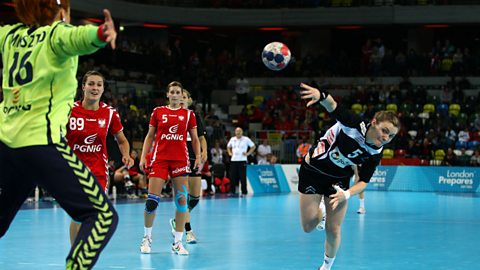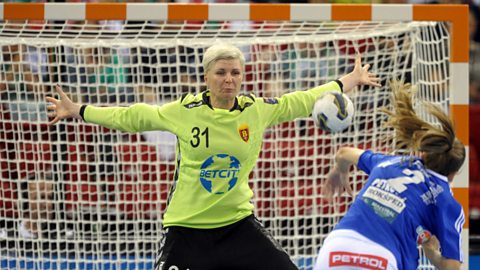Handball - an overview and history of the sport
Overview
Handball brings together a combination of football, basketball and netball. The game is contested by two teams of seven players and involves one team invading another team's territory with the aim of throwing a ball into their opponent's goal. The game is very fast, skilful and competitive and requires a range of physical attributes in defence and attack. Handball is very exciting for spectators and a typical game can generate scores of up to 35 goals each.

Handball is now played across the world with an estimated seven million players registered with a club. The game today has a number of different formats and has the same basic techniques as field handball, Czech handball and beach handball.
History
There is evidence of ancient Roman women playing a version of handball called expulsim ludere, and similar games being played in medieval France in the Middle Ages.
By the 19th century, similar formal games were also being played in Denmark, the Czech Republic, Slovakia, Ukraine and Germany.
Handball was originally played as an outdoor sport and the first formal, international games were played between Germany and Belgium (men's teams) in 1925 and between Germany and Austria (women's teams) in 1930.
The invention of indoor handball did not occur until the 1940s, when it was revolutionised into a seven-a-side game and played on smaller courts with specialist goals. Over the following decades, indoor handball developed quickly, particularly in Scandinavian countries.
The sport evolved, became known as team handball, and the men's game was added to the 1972 Summer Olympic Games in Munich. Women's team handball was added to the following Summer Olympics in 1976. Due to its popularity in the region, Eastern European countries became the dominant force in the sport.
Today, there are a large number of professional handball teams throughout Europe and Asia, that have large followings.
